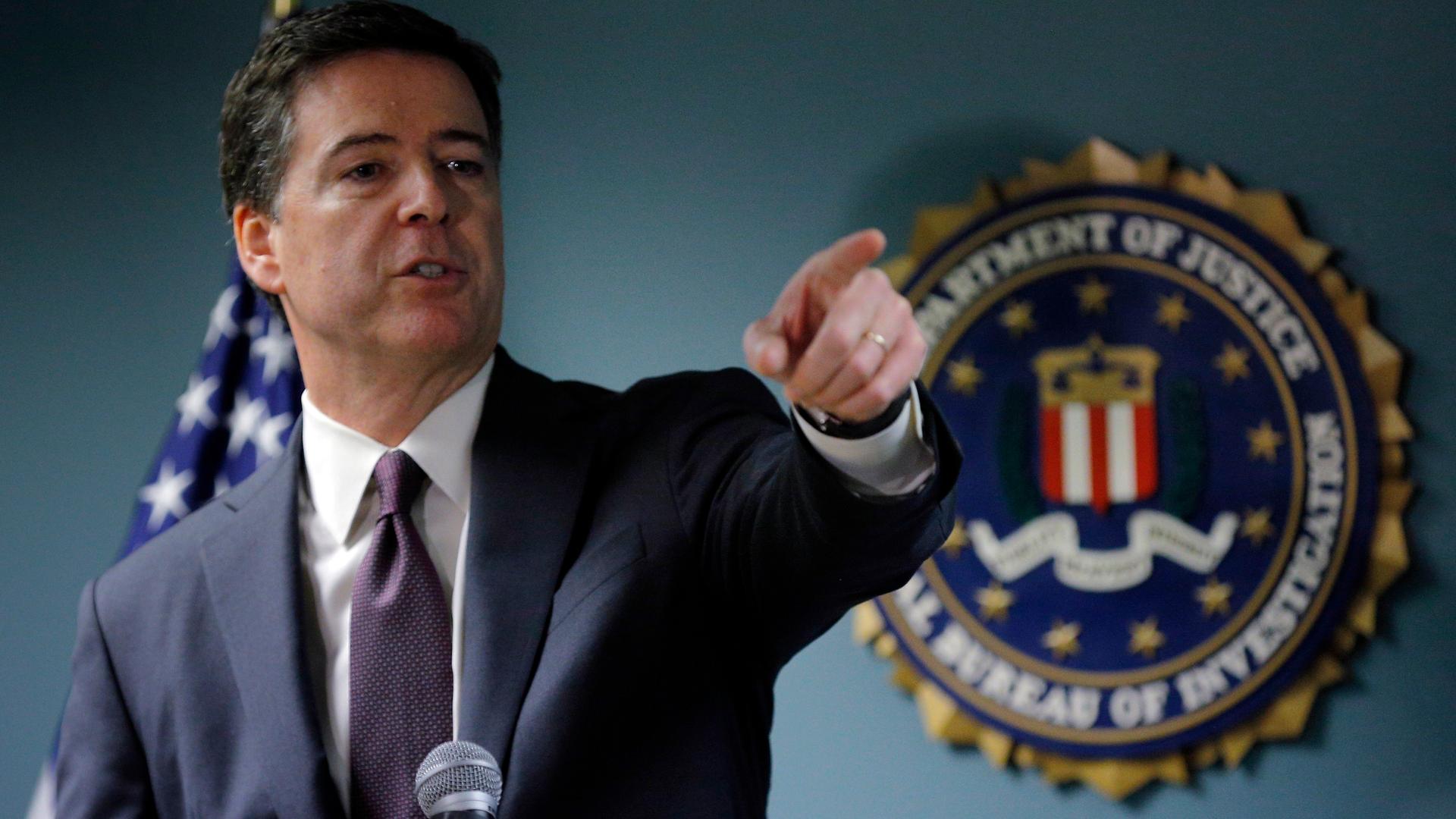How the FBI used ‘invalid, grossly exaggerated testimony’ for decades
FBI Director James Comey takes a question from a reporter during a news conference at the FBI field office in Boston, Massachusetts, on November 18, 2014.
The Department of Justice and the FBI have officially acknowledged the agency's elite forensic examiners gave flawed trial testimony for decades.
The FBI has long claimed to be able to associate a particular defendant or suspect with hairs found at a crime scene just by visually examining the evidence. But the ongoing DOJ investigation found that FBI examiners routinely presented faulty hair matches that favored the government's cases, leading to convictions in 257 of 268 trials. At least 32 of those cases carried death sentences — 14 have been executed or died in prison.
“This is a particularly virulent strain of the cancer of unvalidated and unreliable forensic evidence being used in criminal trials,” says Chris Fabricant, the director of strategic litigation at the Innocence Project. “This audit shows that for the last 40 years, the FBI has been introducing exaggerated and unreliable testimony.”
The Innocence Project and the National Association of Criminal Defense Lawyers both assisted the government in the investigation. Fabricant says they discovered that courts simply never questioned the FBI's analyses, despite the lack of supporting data.
“What many analysts did — and taught hundreds of state hair comparison experts to do the same — was to use their own experience to suggest that hair was essentially unique or that the chances of a coincidental match between a suspect and a random person in the universe was so unlikely as to be meaningless,” he says. But "they had no data to support that. … It’s really almost a directed verdict of guilt and it’s all invalid, grossly exaggerated testimony.”
Of the 268 trials examined in the report, Fabricant says the FBI’s erroneous hair matching claims resulted in at least 74 wrongful convictions. In other cases, there was additional evidence to prove a convict’s guilt even discounting the FBI's mistakes, but defendants and prosecutors in 46 states are being notified to determine whether these hair evidence exaggerations are grounds for appeals.
Perhaps even more disturbing is the science around fingerprints, Fabricant says.
“People would be shocked to know that the uniqueness of the human fingerprint has never been scientifically established,” he says. “There’s evidence, of course, that you can associate someone with their fingerprints, but there’s this assumption that you can say that this person left this fingerprint to the exclusion of everyone else on the planet. As it stands right now, we can’t say that’s consistent with science."
The Innocence Project is calling on the White House to support research to validate the claims that are being made in courts around the nation. The National Institute of Standards and Technology is also attempting to establish national standards for this type of evidence.
“Until we do that, the claims that forensic practitioners are making in courts are speculative,” Fabricant says. “The sad history of the use of unvalidated and unreliable forensics in criminal courts suggests that scientific illiteracy is a huge problem in criminal justice.”
This story is based on an interview with PRI's The Takeaway, a public radio program that invites you to be part of the American conversation.
